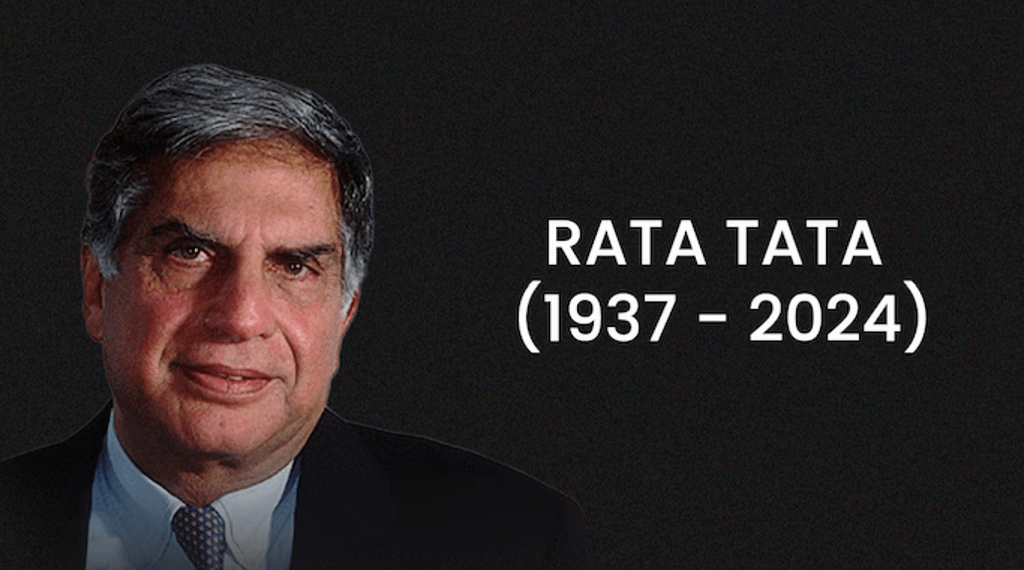
Ratan Tata, one of India’s most revered industrialists and philanthropists, had lived a life marked by exceptional leadership, humility, and an unwavering commitment to the betterment of society. As the former chairman of Tata Sons, the holding company of the Tata Group, Ratan Tata transformed the conglomerate into a global powerhouse, while upholding the values of ethics, integrity, and compassion that have long defined the Tata legacy.
Early Life and Education
Born on December 28, 1937, into one of India’s most prominent business families, Ratan Tata was raised by his grandmother, Navajbai Tata, after his parents separated when he was just ten years old. Despite his privileged upbringing, Ratan Tata’s early years were not devoid of challenges. The values instilled by his grandmother taught him the importance of humility, hard work, and a sense of responsibility towards others.
He completed his schooling at the prestigious Campion School in Mumbai, before pursuing higher education abroad. Ratan Tata studied architecture at Cornell University in the United States, followed by an advanced management program at Harvard Business School. His education in architecture, rather than business, was unconventional for someone expected to lead a business empire, but it played a crucial role in shaping his perspective on innovation and design.
Entering the Tata Group
Ratan Tata’s career at Tata Group began in 1961, where he initially worked on the shop floor of Tata Steel, handling various operational tasks. This experience proved to be pivotal in shaping his leadership approach—he learned the importance of understanding every aspect of a business from the ground up. Rather than relying on his family name, he earned his place in the company through hard work and dedication.
In 1991, Ratan Tata succeeded J.R.D. Tata as chairman of Tata Sons. At the time, many doubted whether he could live up to the legacy of his predecessor. The group was a vast and decentralized entity, with several individual companies operating with significant autonomy. Ratan Tata faced the daunting task of bringing coherence to the sprawling conglomerate.
The Transformation of Tata Group
Under Ratan Tata’s leadership, the Tata Group underwent a remarkable transformation. He focused on global expansion and innovation, with a vision to make Tata a global brand. One of his first major moves was to streamline the group’s operations, reducing the number of companies from over 300 to around 100, and focusing on core industries such as steel, automotive, telecommunications, and IT.
His most notable achievements include the acquisition of international companies, such as Tetley Tea, Corus Steel, and the iconic British car brands Jaguar and Land Rover. These acquisitions not only expanded the Tata Group’s global footprint but also helped solidify its reputation as a world-class conglomerate.
Tata Nano: A Visionary Endeavor
Ratan Tata’s leadership was characterized not just by financial success but also by a deep-rooted commitment to addressing societal issues. The Tata Nano, a compact car priced at just ₹1 lakh (approximately $2,500), was a product of his vision to provide affordable transportation to millions of Indians. While the Nano didn’t achieve the commercial success anticipated, it demonstrated Ratan Tata’s innovative thinking and his desire to create products that could make a meaningful impact on people’s lives.
Philanthropy and Social Responsibility
Throughout his career, Ratan Tata had been a champion of philanthropy. Much of the Tata Group’s profits were directed towards charitable causes, in line with the family’s tradition of social responsibility. Under Ratan Tata’s guidance, the Tata Trusts, which control the majority stake in Tata Sons, have funded numerous initiatives in education, healthcare, rural development, and the arts.
Ratan Tata’s personal philanthropic efforts are equally inspiring. Even after retiring as chairman in 2012, he continued to support various charitable endeavors, focusing on promoting entrepreneurship, education, and technological innovation. He had been an advocate for startups and had invested in several young Indian companies, helping foster a new generation of entrepreneurs.
Humility and Leadership Style
Despite his vast wealth and influence, Ratan Tata remained a paragon of humility. Known for his soft-spoken and unassuming nature, he always shied away from the limelight. His leadership style was often described as quiet yet effective, characterized by a deep sense of empathy and a genuine desire to uplift others.
Unlike many other business leaders, Ratan Tata never sought personal gain from his success. Instead, he consistently focused on creating long-term value for the Tata Group, its employees, and society at large. This selflessness and commitment to the greater good have earned him immense respect, both in India and internationally.
Legacy
Ratan Tata’s legacy was one of vision, compassion, and unwavering integrity. He transformed the Tata Group into a global force while upholding the principles of ethical leadership that his family has long stood for. His philanthropic efforts continue to touch the lives of millions, and his impact on Indian business and society is immeasurable.
Today, Ratan Tata was more than just a business icon—he was a symbol of what leadership should be. His life serves as a powerful reminder that success is not just about wealth or power, but about using one’s influence to make a positive difference in the world.
In conclusion, the life of Ratan Tata is a testament to the power of visionary leadership, grounded in humility and a deep sense of responsibility towards others. His legacy will continue to inspire generations to come, not just in India, but across the globe.